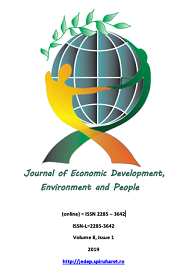Utility Maximization of Bangladeshi Consumers within Their Budget: A Mathematical Procedure
Utility Maximization of Bangladeshi Consumers within Their Budget: A Mathematical Procedure
Author(s): Haradhan Kumar MohajanSubject(s): Business Economy / Management, Micro-Economics, Political economy, Welfare services, Economic development, Public Finances, Marketing / Advertising
Published by: Editura Fundaţiei România de Mâine
Keywords: Consumer satisfaction; Lagrange multipliers; utility maximization;
Summary/Abstract: A consumer is considered as a person or a group of people who uses purchased goods, products, or services only for personal use, and not for manufacturing or resale. Consumers usually purchase valuable and useful commodities or goods by spending all or partial of their income. The property of a commodity that enables it to satisfy human wants is called utility. Producers must be conscious to increase the utility among the consumers. This study has considered the maximization of utility problem of consumers of Bangladesh subject to two constraints; namely, budget constraint and coupon constraint. Consequently, in the study two Lagrange multipliers are used and interpreted these with mathematical analysis. Prediction of consumer behavior will help both producers and consumers to take decision of their future economic productions and consumptions, respectively. This article is ornamented with sufficient theorems and economic analyses. So that all the readers find interest when go through the economic analysis of utility maximization.
Journal: Journal of Economic Development, Environment and People
- Issue Year: 10/2021
- Issue No: 3
- Page Range: 60-85
- Page Count: 26
- Language: English

